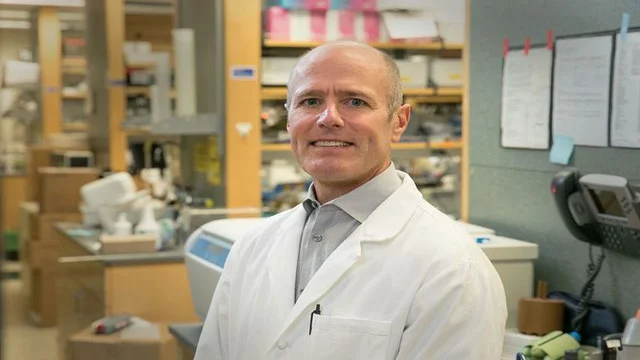5:39 PM The missing gene contains a tremendous sense in the recovery of patients subsequently mild heart attack | |
More than 6 million Yankees live with disabilities after a heart attack. Including mild strokes have all chances to forget survivors with weakness of arms and legs, bad weather, muscle control and memory lapses, which deteriorate with age. Now neuroscientists of the California Institute in Los Angeles noticed, in fact, that patients born without the gene CCR5, than any other recover subsequently mild heart attack, than patients with this gene. The team collaborated with Israeli researchers to investigate the effect of the missing gene on brain function. Posted February. 21 in the cell of the journal, the results have all the chances to lead to 1 tablet in order to send back the physiological and intellectual results of a mild heart attack. “This is the 1st case where the human gene was associated with the best recovery of a stroke later," said senior Creator Dr. S. Thomas Carmichael, head of the Department of neurology at David Jeffen's medical secondary school at the California Institute in Los Angeles. "Our invention invites very interesting abilities to improve the health of patients and increase the properties of their lives.” CCR5 plays numerous roles in the body. When HIV gene opens the cell doorway, in which the microbe is obliged to enter, in order to get sick immune system. Is that the same gene, which the Chinese scientists, as described, adjusted with the support of genetic engineering known as CRISPR, in order to genetically modify human embryos. The real study is based on more early UCLA research on mice showing that CCR5 inhibition actually increases the ability of neurons to create fresh connections and rebuild the brain subsequently to injury. Under the direction of neuroscientist of the California Institute in Los Angeles, Alcino Silva, a 2016 study still showed that maraviroc, an FDA-approved product that targets CCR5 in order to slow the progression of HIV in patients, make better study and memory in mice. Because maraviroc overlaps CCR5, Carmichael and his team presented, in fact, that the product still has the ability to accelerate the recovery of a subsequent heart attack. His lab collaborated with the pharmacologist Esther Shohi at the Jewish Institute in order to ascertain the efficacy of the product in the suppression of CCR5 in the mouse model. "We noticed that maraviroc actually blocked the CCR5 in mice and increased the recovery of animals later craniocerebral injury and stroke," said Carmichael, a member of the UCLA brain research University. "The big question left to answer was whether the liquidation of CCR5 would lead to what the results of people.” Taking into account the fact that the inaccessibility of the CCR5 gene is widespread among Ashkenazi Jews, Carmichael and his team turned to the researchers of the tel Aviv Institute. By a lucky coincidence, Israeli scientists have already observed 446 patients with a heart attack in an observational study. Led by Einor neuroscientist Ben Assayag, the study focused only on patients who suffered from mild or moderate angina. Her team documented improvements in walking, hand and foot control, and other forms of movement. "Einor's laboratory had blood standards for patients, and they considered their subsequent heart attack recovery with a break of 6 months, once a year and 2 years," said Carmichael, who is still considered co - Director of the center for regenerative medicine Eli & Edythe Broad and stem cell studies at UCLA. “People which were missing the gene for CCR5, have proved more important to the recovery of motor abilities, language and sensory functions.” A year later, heart attack patients with no CCR5 still scored more points in studies that evaluate memory, verbal function and care. Neurons produce CCR5 only during or after a heart attack. Removal of CCR5 appears to promote recovery by increasing plasticity-the ability of the brain to rebuild subsequently to injury. “When you suffer from a heart attack, a portion of your brain dies, breaking the connection of these cells with neurons in other areas. That's why patients with a heart attack often suffer from paralysis or lose their speech," Carmichael said. “When the CCR5 co-receptor is missing or blocked, neurons have a chance to make fresh connections and to reconstruct the brain, allowing patients to resume some of the lost function.” The upcoming step of the scientific workers will start a clinical test of a product's performance maraviroc painful myocardial gene CCR5. The study was funded by Dr. Miriam & Sheldon G. Adelson Medical Research Foundation, State Institute of neurological disorders and heart attack, American heart Association, American-Israeli bilateral science Foundation and American Federation of aging studies. | |
|
| |
| Total comments: 0 | |
